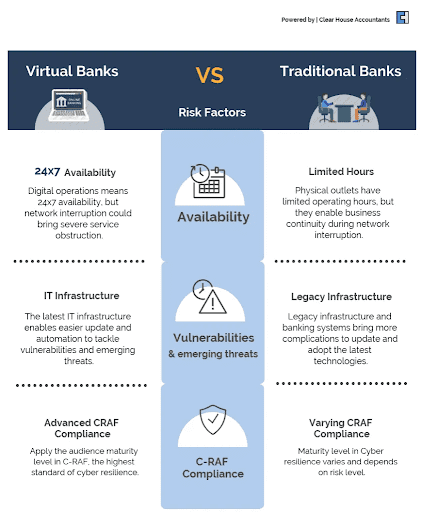A foreigner can open a bank account in the UK if they live and work in the country. If you are a foreigner and want to open a bank account in the UK, it is essential to look at the banks that are listed on the government’s Financial Services Register, called the ‘Register of Financial Service Providers’ or RFS. The register shows which banks provide which services to whom.
There are a few types of bank accounts that you can open in the UK:
- Savings account: This is the most common type of account you can open in the UK. With a savings account, you can keep money in the bank, use it to pay bills or other expenses and save for a future goal.
- Current account: With this type of account, you can withdraw money from your account, pay bills or other expenses, and use it to make purchases.
- Money transfer account: With this type of account, you can transfer money between accounts.
- Business account: A business account is a bank account linked to a company’s business name. You can use the business account to receive and spend money.
Discover how the Government Help to Save Scheme can boost your savings in the UK.
If you want to open an account, you will need to provide the following:
- Passport or driver’s licence
- Proof of address (utility bills, an employment contract, or a lease).
- You must be at least 18 years old to open a bank account.
- You also need to be a resident of the UK.
If you want to open a business account, you will need to provide:
- Driver’s licence, passport, and ID card for each company director.
- Business address – utility bills, bank statements, and council tax statements are also applicable.
- Contact details – phone number, email address.
- Companies house registration number.
- Must have a valid National Insurance number.
- Employer Identification Number (EIN) (or a Social Security number if you’re a sole proprietorship).
- Who are non-residents?
- Who is qualified to open a bank account in the UK?
- Step-by-step instructions to open a UK bank account as a non-resident.
- Banks that provide an opening of a bank account for a UK non-resident.
- Would I be able to have a bank account without a UK address?
- What are the benefits of a virtual bank account?
- How long will it take to open a virtual bank account?
- The big four UK banks to consider.
Effective financial management is crucial for managing bank accounts and achieving success in the UK.
Who are Non-Residents?
Non-residents are people who live in a country other than their own. They are often professionals who have a job, business, or a limited company.
Non-residential individuals can be either temporary or permanent residents. In some cases, a person may be classified as a non-resident even though they are not physically present in the country where the tax is due. For example, a person who has a permanent address in one country but whose primary residence is in another country will be treated as a non-resident for tax purposes if they have a job or a business.
If you are a non-resident of the UK, you should consider filing a tax return for the country. Therefore, you can consult an expert tax adviser to determine what taxes you must pay.
Who is Qualified to Open a Bank Account in the UK?
If you are a UK resident or non-resident, you can have a UK bank account. It’s not as difficult as you may think because the British financial system is very lenient in these situations. There are no laws governing opening a bank account in the UK. However, since banks remain independent, they will have the right to deny anyone.
How to Open a UK Bank Account as a Non-Resident.
- To open a bank account as a non-resident in the UK, you must prove your identity and residency in your name.
- You will also need to provide information about your source of income and any other relevant information requested by the bank.
- However, if you want to live and work in the UK for any length of time, you might as well consider banking with one of the UK banks.
- It is essential to keep your business and personal accounts separate to avoid spending your personal income on your business. You can do this by opening a different account for your business this way, you will be able to keep your business and personal finances separate. A business bank account is not a legal requirement in the UK, but it is good to do so.

For example, having a dedicated business banking account for businesses with an e-commerce website can help you save money on transactions. Also, you will be able to apply for merchant credit cards, chargebacks, and other services that aren’t available to non-business accounts.
If you are a non-resident individual of the UK, you can open a bank account in the UK, this will help you to avail several benefits and advantages of your business. However, you need to ensure that you are eligible to open a bank account.
Learn how to start an Amazon business and manage its financials effectively.
Major banks:
Suppose you are opening a non-resident account with a central bank. In that case, it is essential that you know all the details about the account and the fees you will be paying.
Central banks include:
- Barclays International
- Llyods Bank
- HDFC Bank
- NatWest Groups
- HSBC
You can create your bank account with these central banks with ease. There are no complications involved in their process, especially if you are a non-resident.
Authorising Your Company Documents:
Suppose you already have an account with the central bank, you can use it to apply for a Business Account for your business. You’ll also be able to get any necessary documents (such as licences, permits, etc.) with ease if you have an account with central banks.
Apostille Certificate
An apostille certificate is used to certify that a particular document, such as an agreement or contract, is authentic or not. It certifies that the document has been filed for a specific purpose in a specific country. This allows it to be used legally in any of the signatory countries. It is a relatively new certification that serves as a substitute for domestic notarisation, especially for those outside the UK. While it has many similarities with notarisation, it was made to offer additional protections for documents in some instances.
The Hague Convention
The Hague Convention was signed in 1961 and ratified in 1965. It is a set of rules governing the international protection of intellectual property. The convention provides a framework for states to establish a system of mutual legal assistance in cases involving copyright infringement. This is done by requiring signatory nations to provide access to information that would otherwise be unavailable or extremely difficult to obtain.
The Hague Convention 1961 lists many countries that have signed the treaty. The UK is one of the countries that signed the treaty, including the USA, Turkey, Switzerland, Spain, New Zealand, Macau, Hong Kong, India etc.
Suppose you are not a permanent resident of the United Kingdom but need to open a bank account there. In that case, you are eligible to apply for apostille certificates to authorise your company’s certificate of incorporation, memorandum and articles of association to be used in the UK.
Additional Requirements
The process of legalising your company documents involves several requirements.
- First, you must get the documents notarised and then authenticated by the FCO Commonwealth office in London.
- Once these documents are notarized and authenticated, apostille certificates will be issued. Then, you can choose to open a bank account.
- The legalisation of your company documents is not easy. However, it would be best that you take the help of a third party, as this will ensure that your legal status is protected.
Banks That Provide An Opening Of An Account For A UK Non-Resident
If you are a non-resident, you can open a business bank account in the UK with any central bank like Barclays International, Lloyds Bank, HDFC Bank, NatWest Groups, HSBC, etc. The process is simple; you must fill out a form and provide your passport or driving licence, proof of address, and a photograph. You may also need to submit a few documents, like your tax returns and proof of your business.
Most international banks have established a presence in the United Kingdom. They have correspondents who provide banking services to their customers individually, allowing people who may not have the required documentation to open an account. Banks like HSBC and NatWest, Barclays, and Lloyds offer such facilities. To open a bank account, you may need to know your nationality and residency status.
Find out which business bank accounts in the UK are best suited for your needs.
Do Your Research
Although many factors determine which bank you should choose, it is recommended that you first investigate a few of the best because:
- Leading banks have been around for many years and continue to evolve.
- They have well-defined processes and are far more efficient and streamlined than new ones.
- They are much stronger than new banks financially and have experience dealing with complicated matters.
- They are better equipped with more flexibility and understanding.
- Such banks will do their best to keep you safe and secure in your transactions. After all, they need to be assured that they are dealing with an actual person.
- Before you open your account, they will verify that your account opening documents are genuine and that you’re not opening the account under someone else’s name. If they find something suspicious, they will call you to ensure that you are the one requesting the services.
For example, Lloyds Bank allows businesses to open a business account without any initial deposit. Still, one of your account signatories must stay in the UK. On the other hand, Barclays International allows businesses to open a business account with an initial deposit along with the application.
Would I Be Able To Have A Bank Account Without A UK address?
The easiest way to open a bank account is to go to a challenger/digital bank and use their services. They will ask for your identity, such as your passport or driving licence. Still, they won’t ask for any other information. However, there are a few challenges/digital banks that won’t require proof of address, and such banks are:
- Starling Bank
- Revolut
- Monese
- Monzo
Learn more about Starling Bank and how its digital banking services
What Is A Virtual Bank Account?
A virtual bank account is an account that exists only in cyberspace, and that can be operated using a computer or any other digital device. A virtual bank account can store money, conduct transactions, and access financial services.
The virtual bank account is convenient for non-resident directors to conduct business within the UK. They can quickly pay their taxes and other fees and receive dividends and interest.

What Are The Benefits Of A Virtual Bank Account?
- Once you have registered your new account, you will be provided with a unique Bank Code (IBAN).
- You can get payments through a virtual bank account using a credit card or transfer.
- You may be able to make a payment directly to your suppliers or HM Revenue and Customs.
- You can also get paid through various platforms, including Amazon.
- You can send and receive payments through PayPal, bank accounts, and ATM cards, or you can withdraw funds from a local bank account as well.
How Long Will It Take to Open a Virtual Bank Account?
When your company is enrolled in the UK, our team will contact you to begin the cycle and assist you with opening your virtual bank account in
The Big Four UK Banks
The Big Four banks have been around for a long time, and they are known for their high-quality services. They offer several financial products and services, such as mortgages, credit cards, loans, savings accounts, etc.
- Barclays International:
Barclays International Bank is the oldest bank in the United Kingdom. With over 1500 branches throughout the country, they are one of the largest banks. Barclays offers you the opportunity to open your account in three different major currencies (Euro, Pound Sterling, and US Dollars). They also have a savings account that allows you to hold multiple currencies at once.
Barclays international bank is a company that offers an alternative banking model which is designed for businesses that are looking to avoid the complications of having to meet UK financial regulations, as well as not having any UK resident directors or signatories. Barclays has a minimum initial deposit of £10,000 and requires you to visit your branch office in the UK to open your account. Once your account is fully set up, it will be classified as offshore. You can access all the features that any traditional bank would offer you, such as credit cards, debit cards, chequebooks, net banking, telephone banking and much more.
- Lloyds:
Lloyds is a UK banking group and one of the most established brands in the UK. It’s the second largest and is also the largest provider of current accounts in the UK. Opening a bank account with Lloyds is relatively easy; all you need to open your bank account with Lloyds is your identity and proof of your address.
If your company has at least one signatory who lives in the UK, you’ll be able to open a bank account online or by phone. When opening your account, your director or signatory is required to visit their local branch to submit personal ID and address proof as a legal document.
You can also choose from three different account types – standard, business, and personal, each has its own benefits. In addition to the accounts, Lloyds also offers a range of business tools, including accounting software and legal assistance, at a reduced price. In addition, Lloyds has a full-service legal advice team that can provide advice on various issues such as commercial contracts and company formation and registration.
- HSBC Business Banking:
HSBC has been one of the UK’s most established banks for centuries, having more than 1100 branches in the United Kingdom alone. They are one of the best British banks for business accounts, and you can open your account quickly.
HSBC is a leading banking company offering various services to its clients worldwide. They offer a wide range of business accounts and banking services and many other services that can help you fabricate and develop your business, such as knowledge resources with training articles and videos and a dedicated relationship manager.
- RBS/NatWest:
The RBS Group owns the Royal Bank of Scotland. The group is an umbrella organisation of over one hundred smaller banks in many different parts of the world. NatWest provides four business accounts to choose from. They have a wide variety of packages and rates to fit everyone’s needs. You can choose from their standard or premier accounts, which will best suit the size of your business.
Additional Resources
Next Steps
If you have a business and want to open an account in the UK, there are some things that you need to know. First of all, the banks that are listed on the register are those that are regulated by the Financial Services Authority (FSA). The FSA regulates the banks and ensures that they are safe and fair for their customers.
Non-residents can open an account in the UK, even if they are not a resident. However, there are a few things that they need to know about the process of opening an account. In addition to this, they need to take into consideration the requirements that they need to fulfil to open a bank account. This includes having proof of identity and address. You can apply to create a business bank account with any of the central banks in the UK. The first step is to visit the bank branch and fill out the application form. This can be done online or in person. Once you’ve completed the application form, you will need to submit it to the bank. They will then contact you to verify your identity and provide you with a list of documents that you will need to collect and send to them.









































































